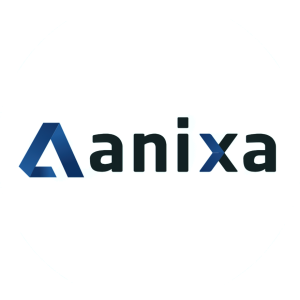Anixa Biosciences and Cleveland Clinic Present New Updated Positive Data from Phase 1 Study of Breast Cancer Vaccine at the 39th Society for Immunotherapy of Cancer (SITC) Annual Meeting
Rhea-AI Summary
Anixa Biosciences and Cleveland Clinic presented updated positive data from their Phase 1 breast cancer vaccine trial at the SITC Annual Meeting. The vaccine, targeting α-lactalbumin protein, showed safety and tolerability across all three cohorts, with over 70% of patients exhibiting protocol-defined immune responses. The trial includes patients who completed triple-negative breast cancer treatment, high-risk individuals with genetic mutations, and patients receiving Keytruda. The primary side effect was injection site irritation. Based on these positive results, a Phase 2 study is planned for 2025, focusing on newly diagnosed breast cancer patients in the neoadjuvant setting.
Positive
- Over 70% of patients showed protocol-defined immune responses
- Vaccine demonstrated safety and tolerability across all cohorts
- Successfully identified Maximum Tolerated Dose (MTD)
- Positive combination results with Keytruda in Cohort 1c
- Phase 2 study advancement planned for 2025
Negative
- One Grade 3 adverse event reported in a recently lactating patient
- Protocol amendment required to include 6-month post-lactation delay
News Market Reaction 1 Alert
On the day this news was published, ANIX declined 4.97%, reflecting a moderate negative market reaction.
Data tracked by StockTitan Argus on the day of publication.
- Data continues positive trend as additional patients are enrolled in 3 cohorts
- Vaccine was safe and well tolerated by participants in all 3 cohorts
- Protocol defined immune responses were exhibited in over
70% of patients - A Phase 2 study evaluating the vaccine in the neoadjuvant setting is planned to commence in 2025
"Triple negative breast cancer is the form of the disease for which we have the least effective treatments," said G. Thomas Budd, M.D. of Cleveland Clinic's Cancer Institute and principal investigator of the Phase 1 study. "Long term, we are hoping that this can be a true preventive vaccine that would be administered to individuals who are cancer-free to prevent them from developing this highly aggressive disease."
"We are pleased with the data we have observed in this clinical trial. The data continues to exceed our expectations. As we near completion of the Phase 1 trial, with the very positive data to date, we are planning a Phase 2 study which is expected to commence in 2025," stated Dr. Amit Kumar, Chairman and CEO of Anixa Biosciences. "We want to thank all of the participants in this trial and also the extensive group of scientists and physicians (19 are listed as co-authors of the SITC presentation) who have worked on this study, along with the numerous additional personnel including nurses, pharmacists, phlebotomists and others who have provided support."
The investigational vaccine is based on decades of groundbreaking pre-clinical research led by the late Vincent Tuohy, Ph.D., who was the Mort and Iris November Distinguished Chair in Innovative Breast Cancer Research at Cleveland Clinic's Lerner Research Institute. Dr. Tuohy's research led to the development of this investigational vaccine. The study is based on Dr. Tuohy's research that showed that activating the immune system against α-lactalbumin was safe and effective in preventing breast tumors in mice. The research, originally published in Nature Medicine, was funded in part by philanthropic gifts to Cleveland Clinic from more than 20,000 people over the last 12 years.
The vaccine was developed at Cleveland Clinic and licensed to Anixa Biosciences. Cleveland Clinic is entitled to royalties and other commercialization revenues from the Company.
"It was Dr. Tuohy's hope that this vaccine would demonstrate the potential of immunization as a new way to control breast cancer, and that a similar approach could someday be applied to other types of malignancy," said Dr. Budd.
Description of the Breast Cancer Vaccine
The vaccine targets a lactation protein, α-lactalbumin, which is only expressed in the breast when a woman is lactating but not at other times in her life or in other tissues. However, when a woman develops breast cancer, including TNBC or other types of breast cancer, many of the malignant cells will express α-lactalbumin. Activating the immune system, through vaccination, to direct cytotoxic T cells to the tumor cell expressing this protein may provide preemptive immune protection against emerging breast tumors that express α-lactalbumin.
Initial Phase 1 data was presented at the San Antonio Breast Cancer Symposium in December 2023. The synopsis below summarizes the additional findings which were presented today at the SITC 39th Annual Meeting.
Presentation Summary
The trial is recruiting patients into three cohorts. Below is a description of each cohort as well as a summary of the key results and conclusions to date.
Cohort 1a participants: The patients enrolled are women who, within the previous three years, have completed standard of care (SOC) treatment, including surgery, for TNBC, the most lethal type of breast cancer. The study is evaluating the safety and tolerability of the vaccine, characterizing immune responses, and identifying a maximum tolerated dose (MTD).
Key Results: All three goals noted above have been achieved, in a group of 21 patients in this cohort. While the MTD has been successfully identified, additional dosages are being evaluated to confirm the MTD. In all patients at the current MTD, the vaccine was safe, producing no flu-like symptoms such as fever and myalgias, no abnormal clinical laboratory tests, or other observed adverse side effects. The only notable side effect was injection site irritation. The majority of patients exhibited protocol defined immune responses of α-lactalbumin specific T cell induced interferon gamma and interleukin-17.
Cohort 1b participants: The patients enrolled are women who carry mutations in their BRCA1, BRCA2, or PALB2 genes that place them at high risk of developing breast cancer, which is frequently TNBC. These women have chosen to have prophylactic mastectomies to reduce their risk of breast cancer. These participants were vaccinated prior to their surgeries, after which they were monitored for safety and immune responses. Immunohistochemistry (IHC) analysis will be performed on their resected breast tissue to evaluate their healthy breast tissue to determine if there are micro-foci of lactational cells, inflammation in the area of those foci and the presence of micro-tumors.
Key Results: Three women have been enrolled in this cohort to date. The safety and tolerability of the vaccine were similar to that in Cohort 1a. Enrollment of additional patients in this cohort is ongoing. The IHC analysis is ongoing and will be presented in a future scientific presentation.
Cohort 1c participants: The patients enrolled in this group are women diagnosed with TNBC who have completed SOC, including surgery, and are receiving pembrolizumab (Keytruda) in the adjuvant, post-surgery setting. Since Keytruda, a checkpoint inhibitor, is already a powerful immunotherapy with its own side effect profile, one of the primary goals of this cohort is to evaluate whether the administration of the vaccine in combination with Keytruda causes intolerable side effects. Immune responses are also being monitored in these participants.
Key Results: Three women have been enrolled in this cohort to date. Most notably, there were no major adverse side effects when the combination of vaccine and Keytruda were administered. As with the patients in cohorts 1a and 1b, the primary adverse side effect was injection site irritation. One patient exhibited a Grade 3 adverse event, which was a greater amount of irritation at one injection site. This patient had been diagnosed with breast cancer while she was pregnant, and she had recently lactated when the vaccine was administered. The trial protocol is being amended to provide for a six-month delay after lactation before a patient can be vaccinated. Similar to the patients enrolled in cohort 1a, the participants in this trial also exhibited antigen-specific T cell immune responses as hoped. Now that antigen-specific T cell responses have been confirmed in women receiving Keytruda and the vaccine, with no major side effects, the data provide the confidence to plan a Phase 2 study in the neoadjuvant setting with newly diagnosed breast cancer patients.
"Since the trial results to date have been very positive, the planned Phase 2 trial will enroll newly diagnosed breast cancer patients undergoing neoadjuvant treatment. Patients will be randomized in a one-to-one ratio, to receive either the standard of care, as defined by NCCN guidelines, alone or the vaccine plus standard of care. The important endpoints in this study will include characterization of T and B cell immune responses and repertoires, pathologic complete response and safety. Utilizing the vaccine in this type of setting will enable us to determine the effect within months for individual patients. The presence of a control group will allow us to determine efficacy in this setting. Assuming the trial data continues to be positive, such a trial may enable a quicker route to a strategic relationship with a large pharmaceutical partner for commercialization," stated Dr. Kumar.
The poster presented at SITC can be viewed at https://ir.anixa.com/events.
For more information and eligibility requirements visit clinicaltrials.gov.
About Anixa Biosciences, Inc.
Anixa is a clinical-stage biotechnology company focused on the treatment and prevention of cancer. Anixa's therapeutic portfolio consists of an ovarian cancer immunotherapy program being developed in collaboration with Moffitt Cancer Center, which uses a novel type of CAR-T, known as chimeric endocrine receptor-T cell (CER-T) technology. The Company's vaccine portfolio includes vaccines being developed in collaboration with Cleveland Clinic to treat and prevent breast cancer and ovarian cancer, as well as additional cancer vaccines to address many intractable cancers, including high incidence malignancies in lung, colon, and prostate. These vaccine technologies focus on immunizing against "retired" proteins that have been found to be expressed in certain forms of cancer. Anixa's unique business model of partnering with world-renowned research institutions on all stages of development allows the Company to continually examine emerging technologies in complementary fields for further development and commercialization. To learn more, visit www.anixa.com or follow Anixa on Twitter, LinkedIn, Facebook and YouTube.
Forward-Looking Statements
Statements that are not historical fact may be considered forward-looking statements within the meaning of the Private Securities Litigation Reform Act of 1995. Forward-looking statements are not statements of historical facts, but rather reflect Anixa's current expectations concerning future events and results. We generally use the words "believes," "expects," "intends," "plans," "anticipates," "likely," "will" and similar expressions to identify forward-looking statements. Such forward-looking statements, including those concerning our expectations, involve risks, uncertainties and other factors, some of which are beyond our control, which may cause our actual results, performance or achievements, or industry results, to be materially different from any future results, performance, or achievements expressed or implied by such forward-looking statements. These risks, uncertainties and factors include, but are not limited to, those factors set forth in "Item 1A - Risk Factors" and other sections of our most recent Annual Report on Form 10-K as well as in our Quarterly Reports on Form 10-Q and Current Reports on Form 8-K. We undertake no obligation to publicly update or revise any forward-looking statements, whether as a result of new information, future events or otherwise, except as required by law. You are cautioned not to unduly rely on such forward-looking statements when evaluating the information presented in this press release.
Contact:
Mike Catelani
President, COO & CFO
mcatelani@anixa.com
408-708-9808
![]() View original content to download multimedia:https://www.prnewswire.com/news-releases/anixa-biosciences-and-cleveland-clinic-present-new-updated-positive-data-from-phase-1-study-of-breast-cancer-vaccine-at-the-39th-society-for-immunotherapy-of-cancer-sitc-annual-meeting-302299962.html
View original content to download multimedia:https://www.prnewswire.com/news-releases/anixa-biosciences-and-cleveland-clinic-present-new-updated-positive-data-from-phase-1-study-of-breast-cancer-vaccine-at-the-39th-society-for-immunotherapy-of-cancer-sitc-annual-meeting-302299962.html
SOURCE Anixa Biosciences, Inc.








